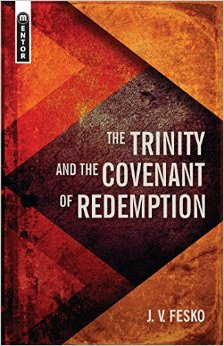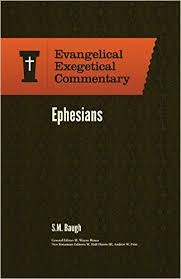Two Important New Volumes
 Wednesday, October 26, 2016 at 02:20PM
Wednesday, October 26, 2016 at 02:20PM Westminster Seminary California's  J. V. Fesko's recent book, The Trinity and the Covenant of Redemption, is the the first in a projected three volume series dealing with each of the major covenants as understood and articulated by confessional Reformed Christians (the covenants of redemption, works, and grace).
J. V. Fesko's recent book, The Trinity and the Covenant of Redemption, is the the first in a projected three volume series dealing with each of the major covenants as understood and articulated by confessional Reformed Christians (the covenants of redemption, works, and grace).
This is a very important and useful book on a neglected aspect of Reformed thought and reflection.
Here's the publisher's description
When Christians reflect on the gospel, their attention is rightly drawn to the cross and empty tomb. But is this it? Or is there much more to the story? In a ground-breaking work, J.V.Fesko reminds us that the great news of this gospel message is rooted in eternity, whereby a covenant was made between the persons of the Trinity in order to redeem sinners like you and me. J. V. Fesko, in the first of a three part series on covenant theology featuring Redemption, Grace and Works, aims to retrieve and recover classic Reformed covenant theology for the church.
The Trinty and the Covenant of Redemption is divided into three sections: historical origins, exegetical foundations, and dogmatic/systematic construction. Fesko capably interacts with seemingly everyone who has tackled the subject from David Dickson's milestone essay in 1638 to Karl Barth, with a host of Reformed theologians in between.
The book is very accessible and not overly technical. I highly recommend it to you.
You can order it here: The Trinity and the Covenant of Redemption
 The second volume is a magnificent commentary on Ephesians from Westminster's New Testament professor Steve Baugh.
The second volume is a magnificent commentary on Ephesians from Westminster's New Testament professor Steve Baugh.
Here's the publisher's description . . .
In his letter to the Ephesians, Paul emphasizes the unity of believers in the inaugurated new creation. He first sets before his audience the salvation freely offered to us through faith in Christ, then applies this truth to their lives, calling them to live lives of love. In this volume, S. M. Baugh approaches this important letter from a first-century perspective, examining ancient sources to determine what Paul's words meant in their ancient context, while also interacting with recent scholarship. The result is a commentary that is academically rigorous and at the same time presents Ephesians as the good news it was meant to be.
Baugh's commentary is easily one of the best I own, and has me looking for excuses to preach through Ephesians again (even though I did so just just a few years ago. The fruit of thirty years of work, Baugh's introductory section defending Paul's authorship of Ephesians is outstanding. If you are a student of Paul, this one is a must.
You can purchase it here: Commentary on Ephesians


Reader Comments